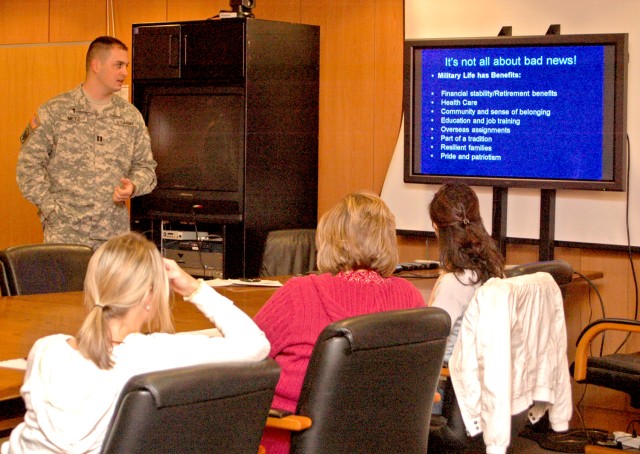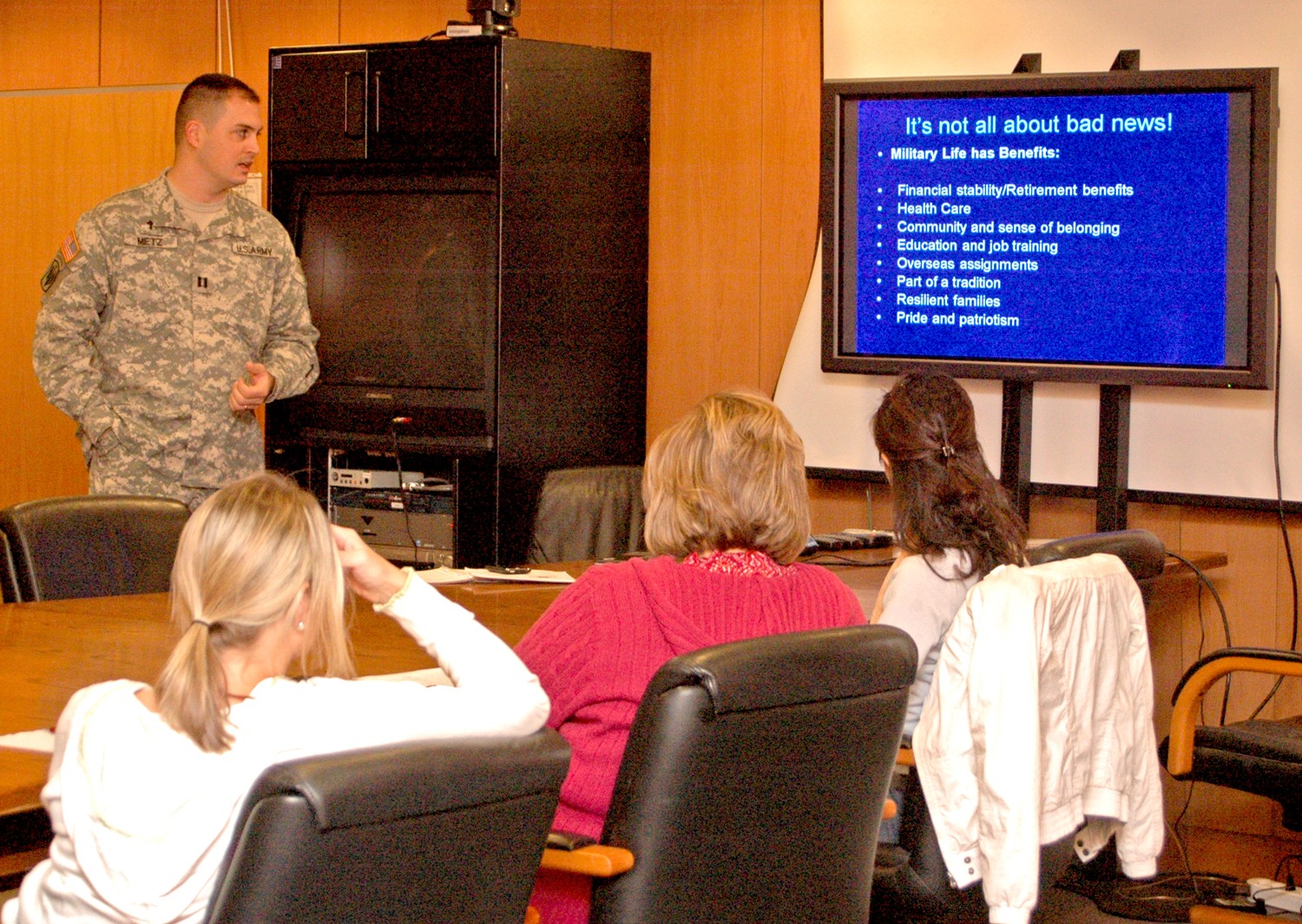WIESBADEN, Germany -- In a room of 20 military spouses, about 15 raised their hands as Chaplain (Capt.) Josh Metz asked, "Who's gone through a deployment before'"
The number wasn't surprising. The spouses and families of 1st Armored Division Soldiers are gearing up for the unit's next deployment to Iraq expected to begin early next year.
"They're experts themselves," said Metz, a chaplain with the U.S. Army Garrison Wiesbaden Religious Services Office.
As operational deployments continue, Army families are becoming accustomed to the challenges of staying behind. But a new training module is providing some Battlemind skills to help spouses and couples minimize the impact of deployment stresses.
Expecting to present a training seminar that eases spouses through the challenges of deployments, Metz had to change pace for his audience.
"These people had lived the reality already," he said.
His goal during the unit's first Spouse Battlemind training was to foster a sense of community and resiliency.
"I wanted them to have a sense of 'we can do this,' to come out stronger by (the deployment experience) rather than ravaged by it," he said.
Battlemind training for Soldiers was first initiated by the Walter Reed Army Institute of Research as a way to prepare Soldiers for the demands and challenges of military life, operational deployments and combat.
The Spouse/Couple Battlemind training builds on the key components of independence and resiliency. It focuses on how to handle stressful challenges and is presented in an acronym form.
The training focuses on areas where Soldiers and spouses can reduce or eliminate deployment-related concerns common to military life. The training targets bonds or social support, adding or subtracting family roles, taking control, talking it out, loyalty and commitment, emotional balance, mental health and readiness, independence, navigating the Army system, denial of self or self sacrifice, and cues for help.
"Spouses and trainers continue to request additional information or training on this subject matter especially as the war and the other operational deployments continue," said Toya Trevino, a training instructor at the Army Medical Department Center and School at Fort Sam Houston, Texas.
Designed to get couples and spouses thinking ahead of relationship issues that can arise from deployments, the training naturally targets spouses who are going through a deployment for the first time.
But as Kim Whaley can attest to, each deployment brings new challenges.
"I have three deployments under my belt (as a spouse)," said Whaley, the Family Readiness Support Assistant for 1st AD Special Troops Battalion. "I always know there's something else going on that changes each deployment experience. You're in a different place in your life during each deployment, so no deployment experience for you is ever exactly the same."
A few tips swapped by spouses for keeping the children involved included tic-tac-toe played by mail, a stuffed animal posed in pictures like a traveling gnome and a jar of memories so children always have something to say when mom or dad calls from downrange.
"And social support doesn't need to have a label" said Metz as he explained the importance of a social network to turn to during a deployment cycle.
Metz paused when the training reached the loyalty and commitment slide.
"This is a huge topic. It's a huge deal," he said.
Commitment by both Soldiers and their spouses toward a relationship is crucial, according to the Battlemind training.
"Deployment and separation can be a positive growth experience for you and your family," said Metz.
Regina Kelly, Family Readiness Group leader for the battalion's 146th Signal Company, still gets teary-eyed when she thinks of her husband's last deployment.
But in a good way.
Her husband sent her a card in the mail every week during his one-year deployment in Iraq.
"It was a nice way of showing that even after so many years of marriage he still loved me and found a way to say it," said Kelly.
The battalion will be organizing more Spouse Battlemind training sessions in November. For more information on the upcoming training, 1st AD STB spouses can contact Whaley at 0611-705-6510.
For more information on Battlemind training for Soldiers and families, visit www.battlemind.army.mil.


Social Sharing